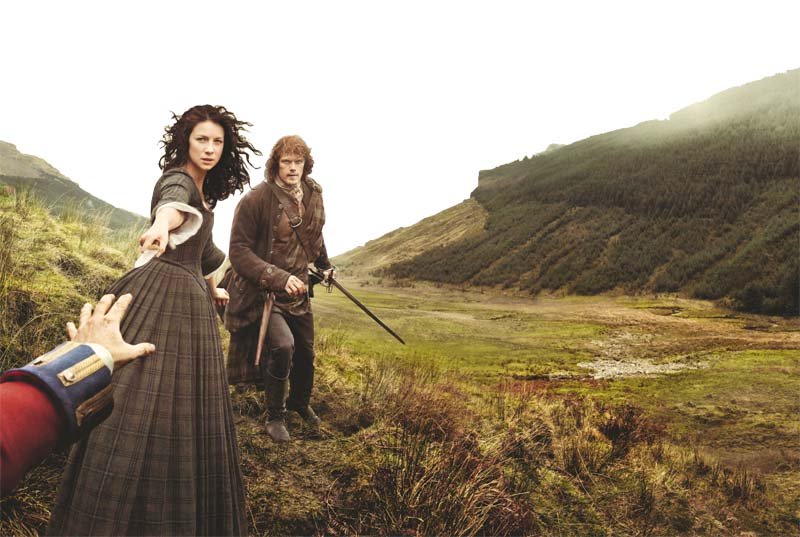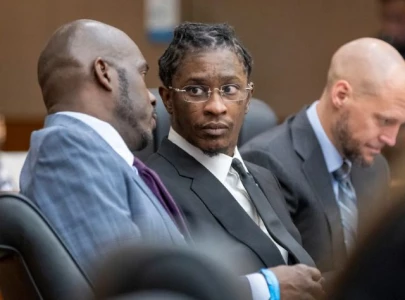
Based on the bestselling eponymous historical fantasy series by Diana Gabaldon, Outlander follows the story of Claire Beauchamp (Caitriona Balfe), a World War II nurse in 1945 who is in the midst of rekindling her marriage with her scholarly husband Frank Randal (Tobias Menzies) on a second honeymoon in Scotland when she stumbles upon some witchcraft that takes her back in time to 1743. Being an Englishwoman in a highly patriarchal and violent Scotland that is on the brink of an uprising against oppressive British rule, Claire’s predicament is serious and highly dangerous — one which the show treats with the necessary gravitas. She finds herself among a Scottish clan where she meets Jamie (Sam Heughan), who turns into an ally with whom Claire shares an immediate connection, and Geillis (Lotte Verbeek), a feisty healer who is rumoured to be a witch. But finding allies doesn’t protect Claire from the many threats she faces. She has to contend with a ruthless and sadistic British officer Captain Jack Randall, a direct ancestor of her husband who looks eerily like him (played again by Menzies).
Outlander has many things going for it. Among them is its effortless ability to straddle multiple genres at the same time. Where one episode is a rollicking, swash-buckling adventure through the highlands of Scotland, the next is a tense foray into political manoeuvrings of the Scottish clan system. The fact that the show can veer from one genre to the next without losing its firm grip on storytelling, and all the while maintaining a consistent tone, is a testament to the show’s capable writers. It dwells upon relevant political and moral themes, such as the complicated enmity between nations, the psychological fallout of war and violence and the position of women in a society that is deeply misogynistic, but they emerge organically from the story, without seeming like the show is trying to make a point.
The other great thing Outlander has that makes it a huge win is its dynamic and fiery main character. Given the situation Claire is in, it would have been easy for the show to fall into the clichéd trope of a damsel in distress constantly being rescued by hunky men. Luckily, Claire is spirited and quick-thinking, using her medical prowess and wit to manoeuvre her way out of any situation she finds herself in. Outlander is Claire’s show, through and through. The show gives her an incredible amount of agency in pushing forward her own narrative, instead of remaining passive while other characters do stuff. The supporting characters all do a great job as well, particularly Menzies, who makes Captain Randall one of the most terrifying villains on television today.
Wrapping up its first season, Outlander has already garnered critical acclaim for its three-dimensional female characters and its thoughtful and nuanced portrayal of violence and intimacy — both of which are always used to drive the story forward and are never gratuitous (like the sex and violence in Game of Thrones). With a dynamic cast, excellent storytelling and impressive production, Outlander is an entertaining and hugely satisfying show.

Published in The Express Tribune, Sunday Magazine, May 31st, 2015.



1716998435-0/Ryan-Reynolds-Hugh-Jackman-(3)1716998435-0-165x106.webp)











1730706072-0/Copy-of-Untitled-(2)1730706072-0-270x192.webp)
COMMENTS
Comments are moderated and generally will be posted if they are on-topic and not abusive.
For more information, please see our Comments FAQ